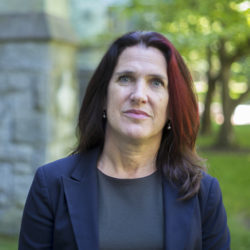In an era of viral deception and online disinformation aimed at polarizing discourse, a new study finds that authoritative sources of information can still serve as a moderating influence on public debate – at least on a contentious issue in science and technology.
Research published in the journal Politics and the Life Sciences finds that public sentiment on GMOs (genetically modified organisms) shifted following the release of a consensus report by the National Academies of Sciences, Engineering, and Medicine (NASEM).

The research, conducted by teams at the University of Wisconsin-Madison and the Annenberg Public Policy Center (APPC) of the University of Pennsylvania, analyzed perceptions of GMOs in connection with the May 2016 NASEM report “Genetically Engineered Crops: Experiences and Prospects.” The NASEM report concluded, among other things, that there was no evidence that eating GMO foods was harmful to human health and that there were environmental trade-offs to genetic engineering technologies, with benefits and risks.
A short-term effect
The researchers’ analysis combined pre- and post-report survey data from APPC with a large-scale content analysis of Twitter discussions. The researchers found a short-term effect in the days following the NASEM report’s release, with reduced negativity in tweets and increased ambivalence in the public’s assessment of the risks and benefits of GMOs, mirroring the conclusions of the National Academies report.
The study found that the NASEM experts’ conclusions not only percolated through traditional news media and social media, but also changed the tone of the public debate.

“That’s what you want,” said Dominique Brossard, a professor of Life Sciences Communication at the University of Wisconsin-Madison (UW-Madison). “The No. 1 lesson is that a consensus report can have an impact beyond just being discussed in polarized arenas.”
The impact on those least trusting of science
The authors noted that the change in public sentiment on GMOs was, surprisingly, most likely for those individuals who were least trusting of scientific studies or university scientists.
The authors include APPC director Kathleen Hall Jamieson and APPC managing director of survey research Kenneth M. Winneg. The UW-Madison team comprised Brossard and Dietram A. Scheufele, both former APPC visiting scholars; lead author Emily L. Lowell; Christopher D. Wirz, and Michael A. Xenos.
The paper, “National Academies of Sciences, Engineering, and Medicine report on genetically engineered crops influences public discourse,” was published online in September in the journal Politics and the Life Sciences.
A fuller description of the research can be found on the UW-Madison website here. Download this news release here.

